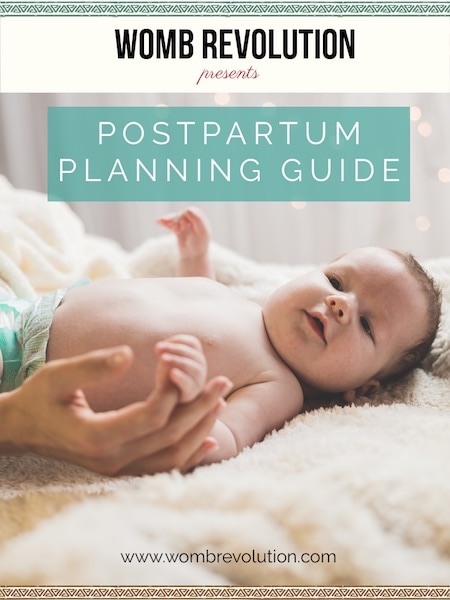For some, the answer is clear: Either they would love to have their relatives at the birth or they feel absolutely confident on not having them around.
But for the ones who feel hesitant, how do you decide?
Here are 6 questions to consider when making a choice.
1. WHY?
Ask yourself why you are considering asking your relatives to join: Is it because their presence brings you comfort? Do you feel obligated? Do you want to be polite? Do you think they have “the right to be there”? Do they think they have the right to be there? Do you want to avoid confrontation? Are you afraid of hurting someone’s feelings? If their presence is not going to bring you comfort and you answered yes to any of the other questions, you might want to look into this issue a little deeper.
2. ARE THEY BRINGING FEARS OR NERVOUSNESS?
Childbirth is a deeply intimate experience and you need to be surrounded by people who trust the process wholeheartedly and who support your decisions 100%. If your relatives are bringing nervousness or fear into your space, their presence is not going to benefit you and therefore, not going to benefit your baby.
| “If your relatives are bringing nervousness or fear into your space, their presence is not going to benefit you and therefore, not going to benefit your baby.” |
Childbirth is a sexual experience and a pretty messy one. The sounds and movements that can help cope with labor are often very similar to the ones you would be hearing or seeing during sex. Also, everyone who is present at your birth will most likely see your vagina. If your parents or parents-in-law are not the kinds of people who you would talk to or at least joke with about sex, you could feel inhibited about having them around and prevent yourself from moving your body or making the sounds that could help go through this process.
4. ARE THEY GOING TO LEAVE THEIR PERSONAL BAGGAGE AT THE DOOR?
Everyone carries around their own birth stories, that’s normal and okay, but since everyone’s experience is unique, those stories need to be left out of yours. If your mom had a natural birth, will she comment on that in the case you decided to get an epidural? If your mother-in-law had a C-section, will she remind you of that when the doctor comments on how your baby is probably going to be “a good size”? Those kinds of comments can negatively affect your memory of your birth. Your relatives need to know about it. It’s not about them, this is your birth!
5. WHAT’S THEIR RELATIONSHIP WITH YOUR PARTNER LIKE?
If you want you have a partner and you want them at the birth, but their relationship with your relatives is tense, that tension will most likely be felt in the room. It can be hard, particularly for some parents, to understand that your spouse or partner is now your closest relative. Whoever is at the birth needs to be able to respect you and your partner as adults, as decision makers, as people educated on your options and capable of making your own choices.
6. ARE THEY GOING TO NEED EMOTIONAL SUPPORT?
If your relatives will be needing support through the birth, who will be providing that support? I surely hope you're not planning on doing it yourself. You might have a doula, but do you really want them focusing their energy on reassuring your relatives instead of focusing on your emotional and physical wellbeing? This is something to think about even when the relative is not actually present at the birth. Having to update friends and family about the progress of labor is not something your partner or support team should be really worrying about while you’re bringing a baby into the world. What’s the point? Their worry shouldn’t be your baggage to carry. You have enough on your plate.
COMING FROM A PLACE OF CARING
We know your relatives care about you and the baby and that’s why they want to either be present or be kept in the loop. But especially for the worriers, what good does it do? What’s the point of having your dad starting at the monitor and worrying about the baby’s heart tone? That’s what your care provider is there for. What good does it do for them to know if a complication does arise? What are they really going to be able to do about it?
COMMUNICATION IS THE KEY
These questions don’t necessarily have to be deal-breakers, but they should be good conversation starters. There needs to be open, honest and loving communication between you and whoever is going to be at your birth. If you’re able to communicate your concerns and your parents are able to listen with an open heart and make the necessary adjustments to their behaviors, then a lot of these possible issues can be resolved. It can be really challenging to have these kinds of conversations because we love our families and we don’t want to hurt any feelings. But believe me, you do want to start setting these boundaries early on. Finding a balance between asking for help and setting healthy boundaries will also make a huge difference during postpartum and parenting. Plus, it can help prevent relationships from going sour.
The grandparents-to-be will have many years to bond with their grandchildren. For a healthy newborn baby, nothing matters more than bonding with his or her parents. No one else. That baby has been waiting for nine months to see the face of his or her parents. To be held in their warm arms. That’s what the baby wants and the rest of the world is literally a blur.
| “The grandparents-to-be will have many years to bond with their grandchildren. For a healthy newborn baby, nothing matters more than bonding with his or her parents.” |
Either way, please do remember this is your birth. You will be the one who will remember this day, the one who needs to be cared for on this special occasion. This is your day and you’re the only one who gets to decide what is right for you.


